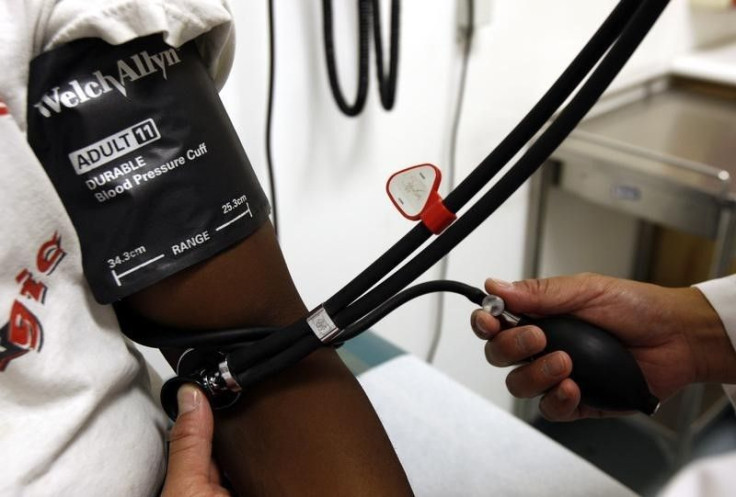High Blood Pressure Danger Equal For Slim And Obese Alike

(Reuters Health) - Though previous research has suggested high blood pressure may be more dangerous for thinner people, a new study finds the cardiovascular disease risks are similar – and high - for the lean, overweight and the obese.
“Some studies done in the past 30 years suggested that for the adverse outcomes associated with hypertension – such as heart attacks and stroke – lean or normal weight people with hypertension had worse outcomes than overweight or obese people with hypertension,” said lead author Laura A. Colangelo of the Feinberg School of Medicine at Northwestern University in Chicago.
“Such a finding might cause one to infer mistakenly that high blood pressure is not important for the overweight or obese but is important for lean or normal weight people,” she said.
“We are saying that high blood pressure is important for everyone, regardless of their weight status,” Colangelo told Reuters Health by email.
The new study included 3,657 nonsmoking men and women with no heart disease, diabetes or cancer before the study began. The researchers analyzed data on these participants from a long-term study of about twice as many people, begun in 2000.
Unlike many studies that group people by weight only, or by body mass index (BMI), a measure of weight relative to height, the current study also included waist circumference. Waist size indicates the degree of fat around the torso, which is linked with heart disease risk.
The researchers divided their subjects into seven groups based on BMI (underweight, healthy, overweight, obese and very obese) and waist circumference, using ethnicity-specific parameters in both cases.
For example, a healthy or “optimal” waist circumference is less than 102 centimeters (40.16 inches) in men and less than 88 cm (34.6 in) in women for white, black and Hispanic ethnicity, and for Chinese ethnicity, less than 90 cm (35.4 in) in men and less than 80 cm (31.5 inches) in women, according to the authors.
Trained technicians collected height, weight, waist circumference and blood pressure measures at the start of the study, and called to check in about any hospital admissions, procedures, cardiovascular diagnoses or deaths every nine to 12 months for an average of 10 years for each participant.
At the start of the study, 1,054 people fell in the healthy BMI range, 1,568 were overweight and 1,172 were obese or very obese.
Most people with a healthy weight also had a waist circumference within the optimal range, whereas almost all obese people had a nonoptimal waist circumference.
Almost 350 of those with a healthy weight had high blood pressure, compared to more than 550 of those in the obese category.
In total, there were 273 cardiovascular disease events during the study, and for every weight category, those with high blood pressure were more likely to suffer one than those without high blood pressure, the study team reports in Hypertension.
Healthy-weight people with no high blood pressure had the lowest risk for cardiovascular events like heart attack or stroke. Obese people without high blood pressure had a higher risk, and healthy-weight and obese people with high blood pressure had equally high risks, the researchers found.
Previous studies, which found greater risk for leaner people with high blood pressure, had included smokers, people with diabetes and cancer, Colangelo noted.
Smokers tend to be leaner but also have more cardiovascular events, which may have affected the results, so they excluded smokers from the new analysis, she said.
“The results in this case still showed normal weight people with hypertension have similar(ly) high absolute risk as obese people,” she said.
Getting high blood pressure under control is important for reducing the risk of cardiovascular disease events, Colangelo said.
“First, by adopting a healthy lifestyle - which includes losing weight if overweight or obese, reducing sodium in the diet, not smoking and increasing physical activity,” she said. “And second, by adhering to the treatment and medication management prescribed by one’s physician.”
(Reporting by Kathryn Doyle)



























